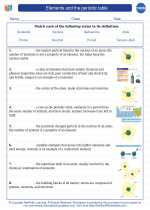Nuclear Energy
Nuclear energy is the energy that is released during nuclear reactions. The two main types of nuclear reactions are nuclear fission and nuclear fusion.
Nuclear Fission
Nuclear fission is the process of splitting an atomic nucleus into two or more smaller nuclei. This process releases a large amount of energy. The most common example of nuclear fission is the splitting of uranium-235 atoms in a nuclear reactor. The energy released during nuclear fission is used to generate electricity in nuclear power plants.
Nuclear Fusion
Nuclear fusion is the process of combining two or more atomic nuclei to form a single, heavier nucleus. This process also releases a large amount of energy. Nuclear fusion is the process that powers the sun and other stars. Scientists are working on developing nuclear fusion as a potential future source of energy on Earth.
Advantages of Nuclear Energy
- Produces large amounts of energy: Nuclear reactions release a huge amount of energy compared to other energy sources.
- Low greenhouse gas emissions: Nuclear power plants produce very low levels of greenhouse gases compared to fossil fuel power plants.
- Reliable and consistent energy production: Nuclear power plants can operate continuously for long periods, providing a consistent source of electricity.
Disadvantages of Nuclear Energy
- Radioactive waste: Nuclear power plants produce radioactive waste that needs to be stored and managed carefully.
- Potential for accidents: The possibility of nuclear accidents, though rare, can have catastrophic consequences.
- High initial costs: Building nuclear power plants requires significant upfront investment.
Studying Nuclear Energy
To study nuclear energy, it's important to understand the basic principles of nuclear physics, including the structure of the atom, nuclear forces, and the processes of nuclear fission and fusion. Additionally, learning about the operation of nuclear power plants and the safety measures involved is crucial for a comprehensive understanding of nuclear energy.
Students can also explore the environmental and societal impacts of nuclear energy, as well as the current and potential future applications of nuclear technology.
Further topics for study might include the development of nuclear weapons, the role of nuclear energy in global energy production, and the ethical considerations surrounding the use of nuclear power.
Overall, a well-rounded study of nuclear energy should encompass the scientific, technological, environmental, and ethical aspects of this important energy source.
.◂Chemistry Worksheets and Study Guides High School. Elements and the periodic table
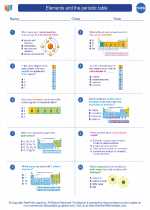
 Worksheet/Answer key
Worksheet/Answer key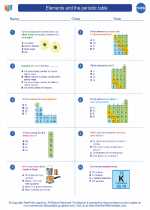
 Worksheet/Answer key
Worksheet/Answer key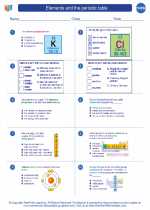
 Vocabulary/Answer key
Vocabulary/Answer key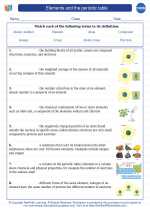
 Vocabulary/Answer key
Vocabulary/Answer key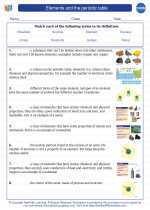
 Vocabulary/Answer key
Vocabulary/Answer key